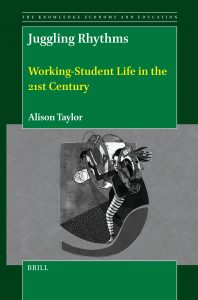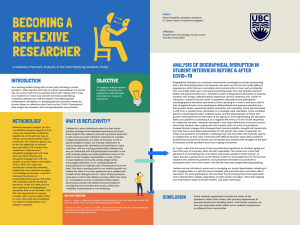This page shares findings from our mixed-methods study.
Book on Working Students
Taylor, A. (2025). Jugging rhythms: Working-student life in the 21st century. Brill. https://brill.com/display/title/72365
As in many European countries, the majority of undergraduates in Canada work while studying. However, little research has examined how they juggle school and work. This book draws on original research to address this gap. It moves from students’ day-to-day survival strategies to engage larger questions including how students prepare for volatile labour markets and the effects of the COVID-19 pandemic. Taylor draws on “circus arts” metaphors to argue that twenty-first century skills include the ability to juggle competing demands, to balance studies and various forms of work, and to learn boundaries and the limits of one’s flexibility. Although students’ experiences are diverse, commonalities indicate areas where more attention and support are needed from policy-makers, educators, and scholars of education.
Report on Paid Work
This report presents findings from two online surveys of undergraduate students at UBC about their term-time work in 2018 and 2019. This was the first phase of the Hard Working Student study. We found that more than half (55%) of the respondents worked during the first semester of 2018, and a slightly greater proportion (57%) worked during the first semester of 2019. Students worked an average of 14.3 hours per week in 2018 and 16 hours in 2019.
|
Taylor, A., Raykov, M. & Sweet, R. (2020, January). Hard Working Students: Report of 2018 and 2019 Survey Findings. Access on cIRcle: http://hdl.handle.net/2429/73374
Report on Unpaid Work
This report presents findings from the same two online surveys of undergraduate students at UBC about their unpaid work in 2018 and 2019. Almost half (49%) of the undergraduate students were involved in volunteer work in 2018, while a slightly smaller proportion of students (44%) reported participating in volunteer activities in 2019. The report explores students’ motivations for pursuing unpaid work, as well as its impact on their development of skills, future education and career plans, and interest in university (compared to their paid work).
|
Raykov, M., Taylor, A., Jamal, S. & Wu, S. (2020, December). Student Volunteer Work and Learning. Undergraduates’ Experiences and Self-reported Outcomes. Access on cIRcle: http://hdl.handle.net/2429/76610
Journal articles
Taylor, A. (2022). ‘Being there’: Rhythmic diversity and working students. Journal of Education and Work, 35(5), 572-584. https://doi.org/10.1080/13639080.2022.2092607
Although universities promote undergraduate degrees as journeys of exploration and reflection, they are also viewed by students as investments in professional careers. This paper draws on a study of 57 second-year students at a research-intensive university in Canada to explore the subjective dimensions of time and school-work rhythms in students’ everyday lives. Data suggest that most students expect to work hard, now and in the future, although their backgrounds influence perceptions of the kind of hard work required, and the magnitude and certainty of returns. Students are future-oriented and participation in term-time work is seen as a way of training for future work lives. This training involves adapting bodies to the temporal logics and rhythms of university studies and workplaces. The interplay of rhythms is experienced by some students as harmonious or ‘eurhythmic’, and by others as discordant or ‘arrhythmic’. The extent of discord is related to differences in students’ work and studies, differences in their time horizons and value calculations, and differences in family background and resources. This paper contends that understanding students’ sense-making in regard to chrono-logics and work-school rhythms is important for building a vision for higher education that better supports human flourishing.
Taylor, A. (2022). Learning to walk the wire: Preparing students for precarious life. British Journal of Sociology of Education, 43(5), 786-803. https://doi.org/10.1080/01425692.2022.2060798
University students today are preparing for a more precarious future than previous generations, and the global pandemic has exacerbated their sense of insecurity and vulnerability. Drawing on data from a longitudinal study of undergraduate students at a large Canadian university, this paper examines the narratives of working students, before and since the pandemic lockdowns began in early 2020. Narratives focus on students’ attempts to handle the diverse rhythms of multiple activities, and how they respond to precariousness in work, family, and academic studies. Findings illustrate intractable tensions within higher education between logics of competition and care, and between access and selectivity. Further, universities, as well as employers, can be seen to contribute to the precarity of students, and to a ‘crisis of care’ in society more generally. Our analysis suggests the need for a more expansive and generous vision for higher education, which recognizes and supports students in their diversity.
Interviews
Selwyn, N. (Host). (2022, August 3). Students’ engagement with work and employment (Alison Taylor) [Audio podcast episode]. In Meet the education researcher. Soundcloud. https://soundcloud.com/eetheducationesearcher/students-engagement-with-work-and-employment-alison-taylor
Conference Papers and Presentations
May 2022
Abu Qaddum, W. (2022, May). Forging futures in pandemic times: The social mobility of working university students in Ontario. Paper presented at the Canadian Sociological Association (CSA) Conference at Congress 2022, Simon Fraser University, Vancouver, BC. https://www.federationhss.ca/sites/default/files/association_programs/1787918-627aa18cc799c.pdf
May 2022
Shan, H., Jamal, S., Raykov, M., & Sweet, R. (2022, May). Towards subjectification: International students as emerging adults – a mixed methods study. Paper presented at the Canadian Society for the Study of Education (CSSE) Conference at Congress 2022, Simon Fraser University, Vancouver, BC. https://csse-scee.ca/wp-content/uploads/2022/05/CSSE-SCEE-Programme-May-9-mai.pdf
March 2022
Paskalitsa, Ellysa. (2022). Becoming a reflexive researcher: A reflexive thematic analysis of the hard working students study. Poster presented at the Multidisciplinary Undergraduate Research Conference, UBC.
Click on poster for full size.
November 2021
Taylor, A. (2021, November 18). “Being there”: rhythmic diversity and working students. Webinar presentation to Canadian Association of Sociology of Education (CASE) and Canadian Sociological (CSA) Sociology of Education Research Cluster. Webinar series, 2021-22.
See recording: https://www.youtube.com/watch?v=MMk4BuOhrXI
September 2021
Raykov, M., Taylor, A., Jamal, S., & Wu, S. (2021, September). University students’ perceptions of the outcomes of unpaid term-time work. Paper presented at the European Conference on Educational Research (ECER). https://eera-ecer.de/ecer-programmes/conference/26/contribution/51120/
June 2021
Jamal, S., Taylor, A., & Shan, H. (2021, June). Responses and responsibilities: Complexity of international students’ work and learning experiences. Paper presented at the Canadian Sociological Association (CSA) Conference at Congress 2021, University of Alberta, Edmonton, AB.
The experiences of international undergraduate students are complex. The intricacies of the social, cultural, financial, and acclimatization challenges that they navigate in seeking to adapt to the Canadian context are sometimes cloaked by stereotypes that portray them as a largely homogeneous and privileged group. Furthermore, some of the pressures faced by international students, including those around policy constraints as well as employability, familial, and immigration issues add layers of complexity to their lived experiences. International students also do not always have access to the same benefits that Canadian citizens and permanent residents do, and this contributes to the burden that they bear as they navigate challenges with varying levels of familial, social and professional support. Based on preliminary findings of a SSHRC funded longitudinal mixed methods study taking place at the University of British Columbia and the University of Toronto, this presentation will begin to unpack some of the complexities of international undergraduate students’ experiences in Canada. In doing so, it will aim to reconstruct some of the erroneous stereotypes about international students that are prevalent in mainstream society.
May 2021
Abu Qaddum, W. & Mirchandani, K. (2021, May). The impact of COVID-19 on university students in Ontario. Paper presented at the Canadian Society for the Study of Higher Education (CSSHE) Conference at Congress 2021, University of Alberta, Edmonton, AB. https://csshescees.files.wordpress.com/2021/05/2021_csshe_prog_20210522-1.pdf
May 2021
Bobadilla Sandoval, C. & Parlatore, V. (2021, May). Meaning-Making: How Canadian undergraduate students build bridges between work and study experiences. Paper presentation at the Canadian Society for Studies in Higher Education Association meeting at Congress 2021, University of Alberta, Edmonton, AB.
Ever-rising tuition costs and the perceived need to graduate with job experience has placed significant pressure on Canadian university students to engage in work during their studies (Zeidler 2017). Despite this, there has been little attention given to the ways students make sense of their term-time work experiences (Smith & Patton, 2013) and what discourses influence their work and study decisions. This presentation focuses on how students define and understand the notion of meaningful work and how students’ understandings of meaningful work reflect or challenge influential societal discourses. We draw from the preliminary analysis of qualitative data from the Hard Working Student (HWS) study to critically discuss the relationship between students and their work, in particular, the meanings they attribute to these activities. For this we use discourse analysis, as outlined in James Paul Gee’s work, which offers a set of tools and thinking devices to engage language in use. From the HWS study, we chose two participants that work in the service industry and used data collected through audio diaries (self-recorded interviews). This presentation offers an analysis of the participants’ responses to their work experiences and views on meaningful work. We also expand on the salient discourses that are present in their responses, identifying aspects of their identities that emerge as significant and valuable when they navigate decisions about their work and studies.
Mirchandani, K. & Shan, H. (2021). The impact of hostile work environments on working university students in Canada. Paper presented at the Canadian Sociological Association (CSA) Conference at Congress 2021, University of Alberta, Edmonton, AB.
A recent study reports that young people in Canada are being asked to “dive into the workforce without a parachute” (Canadian Labour Congress, 2016:4). A “parachute” is deemed necessary because more than half of young people are employed in service sector jobs, many of which are poorly paid, ununionized, temporary and part time. Many young peoples’ first exposure to experiential learning in the workforce occurs in the context of poor quality, hazardous jobs. This paper explores the experiences of students who have worked in hostile environments, often in retail, sales and the services sector. Full time university students engaged in substantial amounts of term-time work participated in focus groups and life map sessions during which they shared their experiences of the hostile working conditions they faced. The analysis highlights the gendered and racialized nature of workplace discrimination faced by the mostly 19 and 20 year olds in the sample, and the ways in which these experiences negatively impacts their studies and well-being. Overall the analysis in this paper suggests the need for strong and directed workplace protection in order to facilitate positive work-integrated learning and prevent employment scarring of teen and young workers.
July 2019
Taylor, A., Raykov, M. & Sweet, R. (2019, July 24). Balancing work and university studies. 11th International Researching Work and Learning Conference, Giessen, Germany.
Download the Conference Presentation
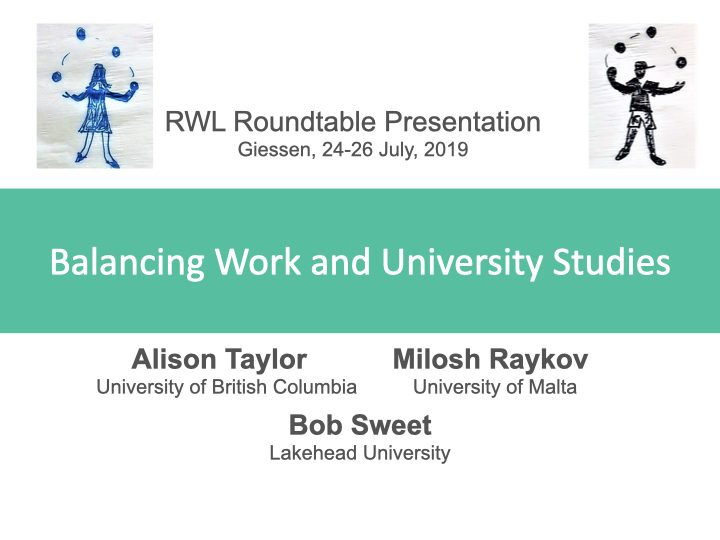
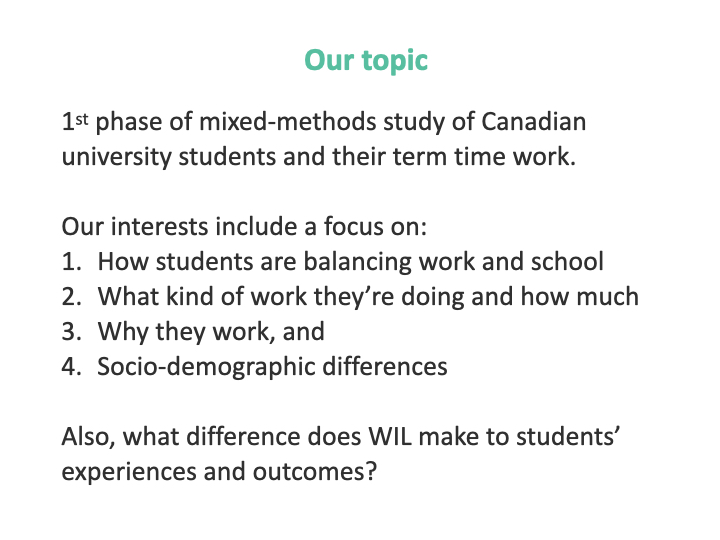
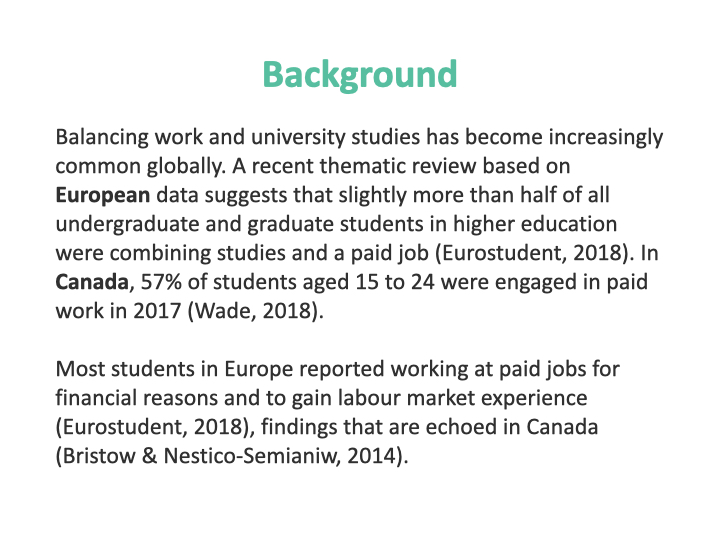

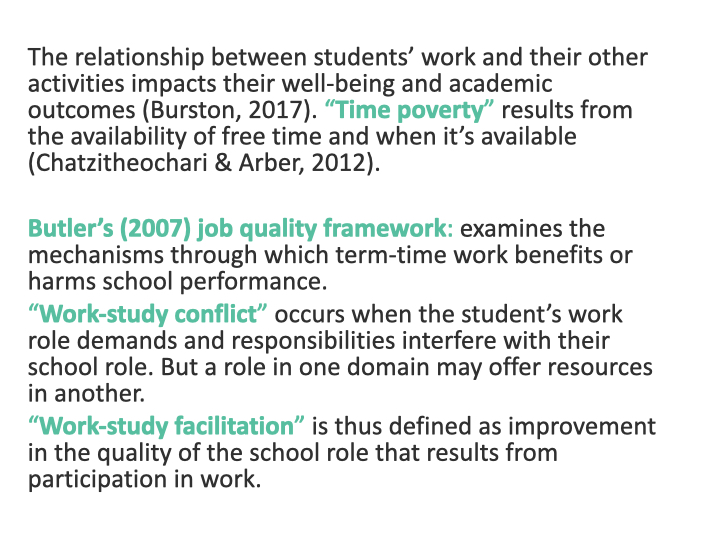
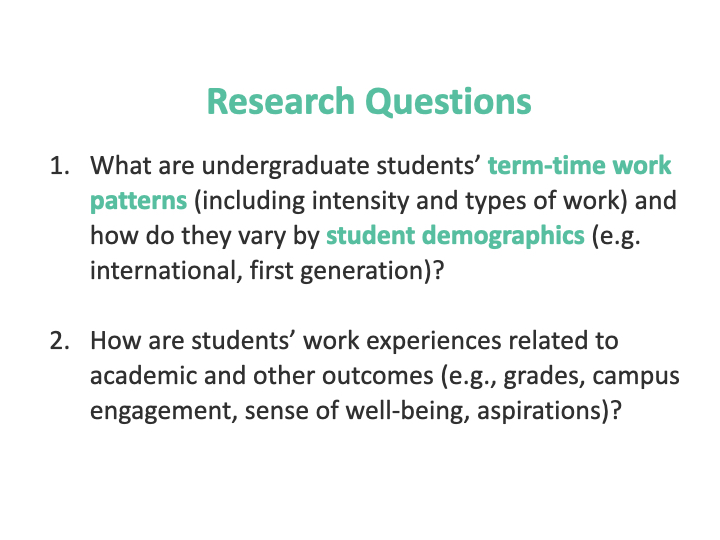
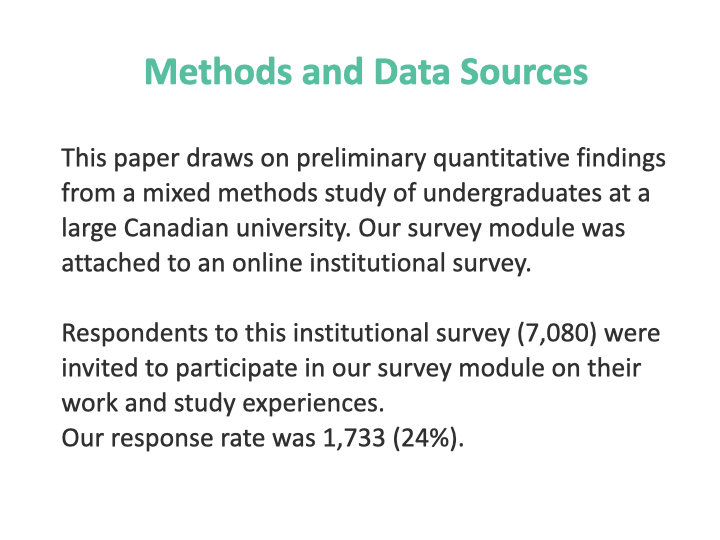
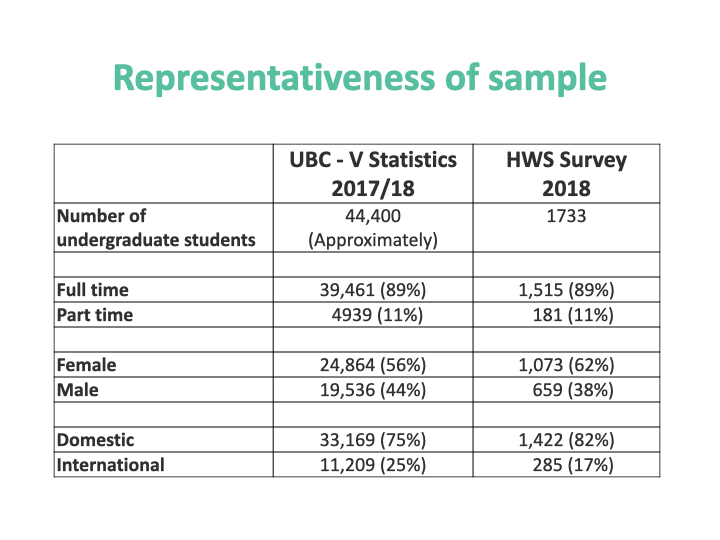
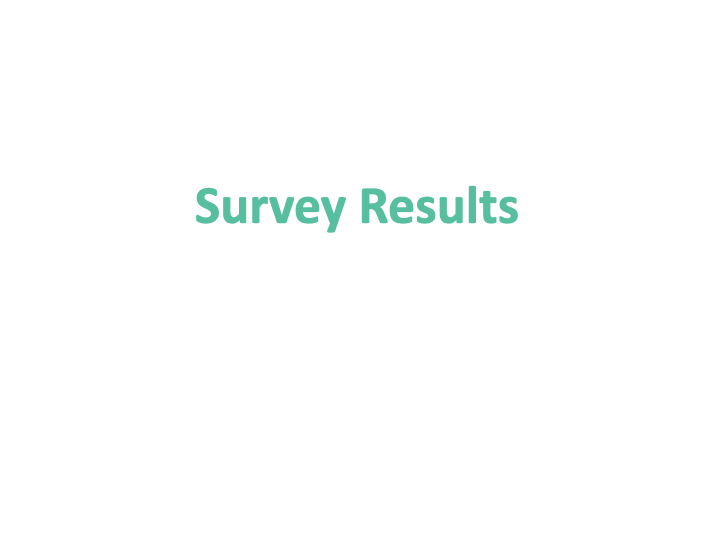
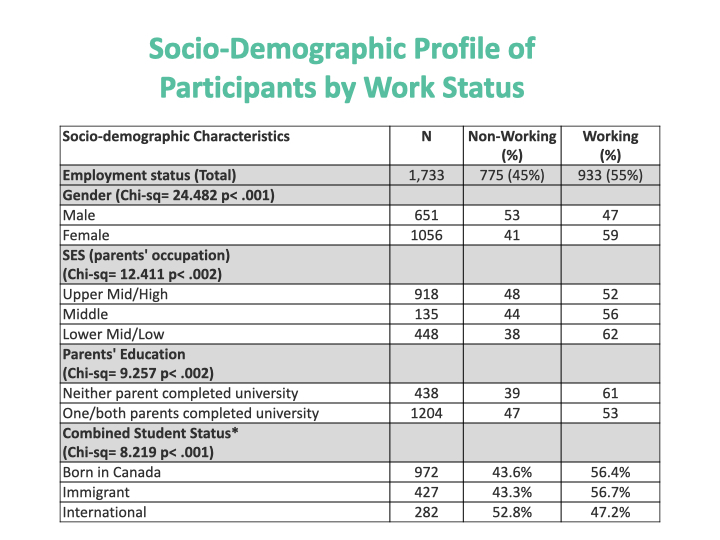
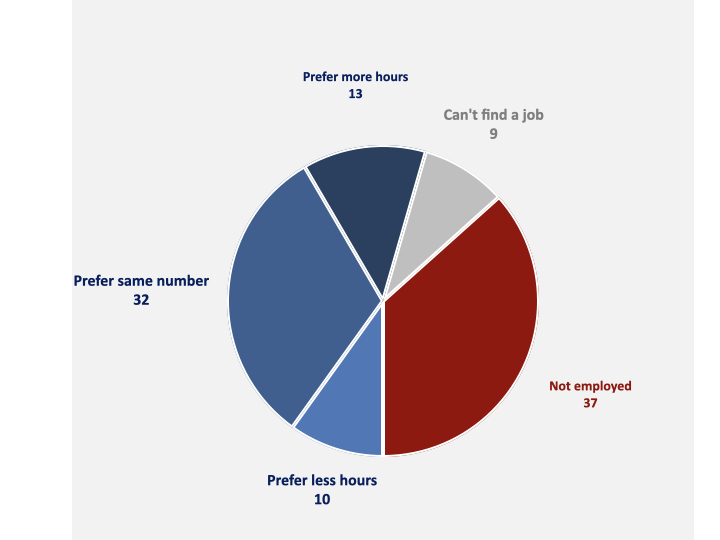
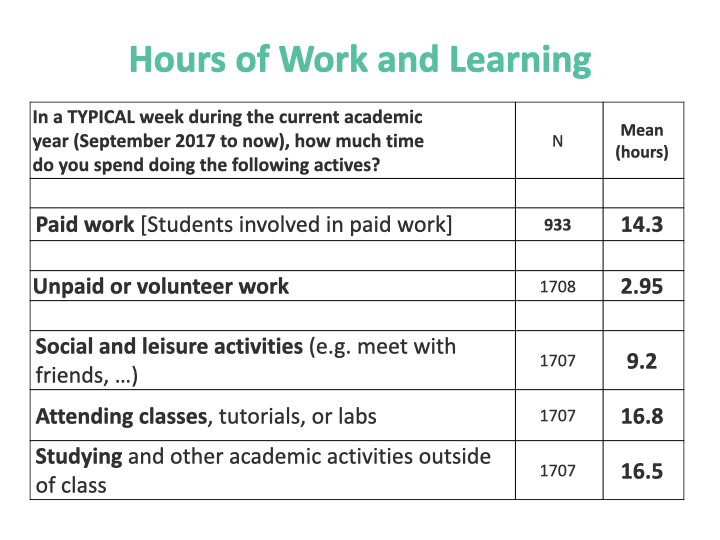
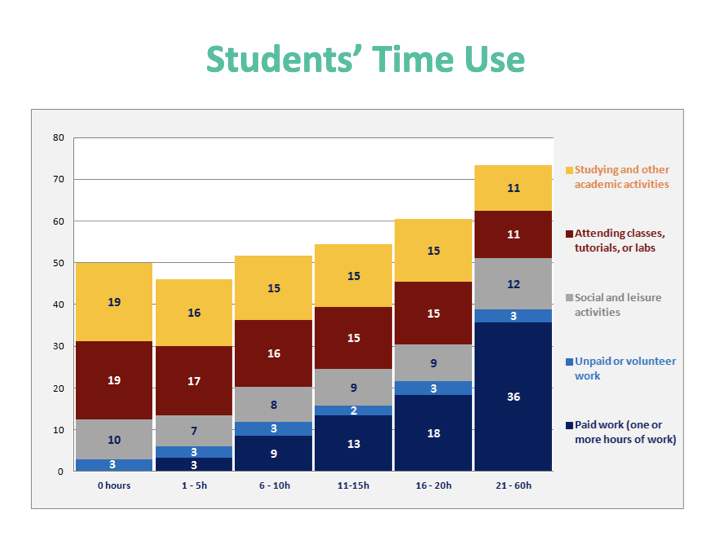
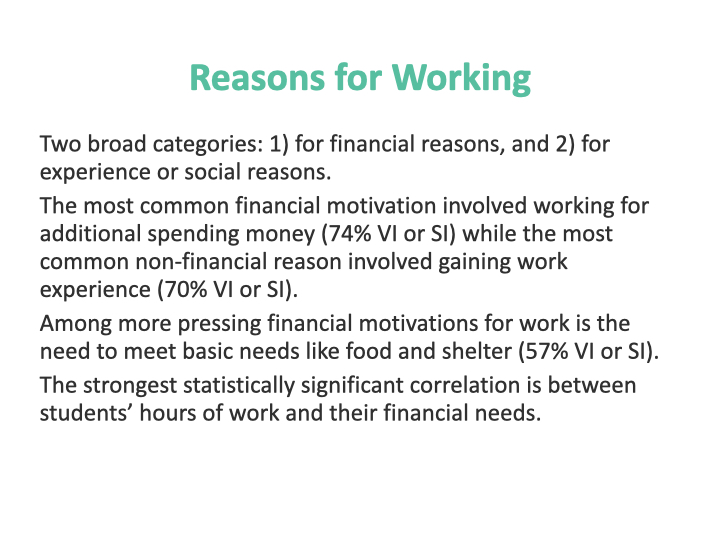
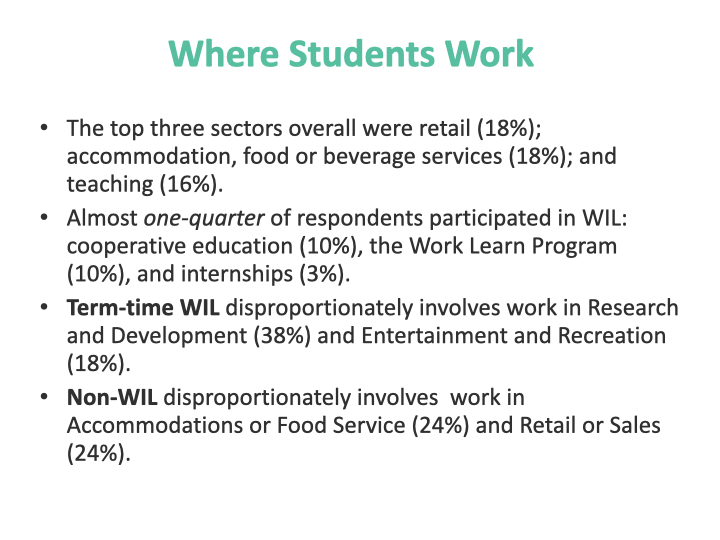
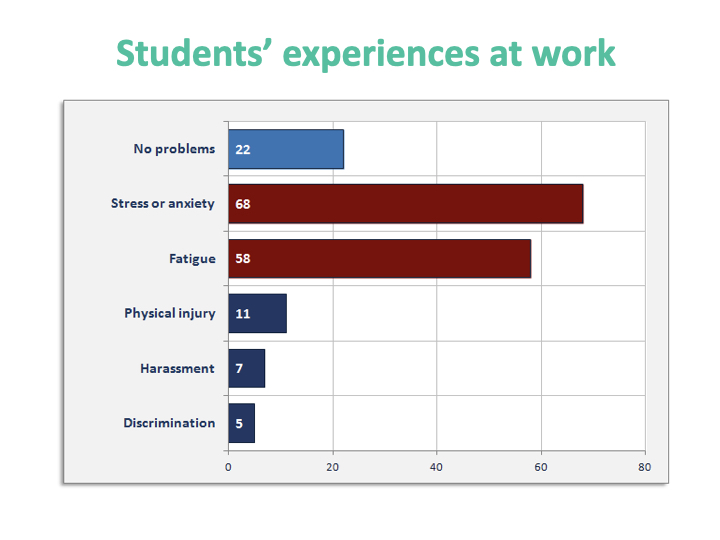
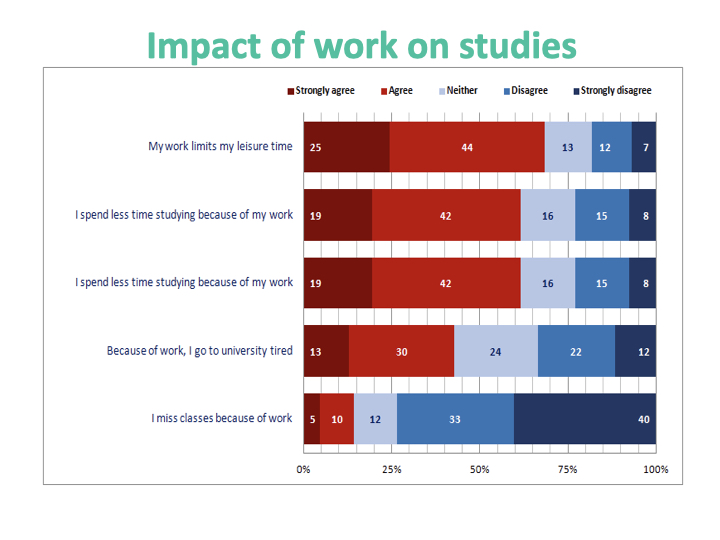
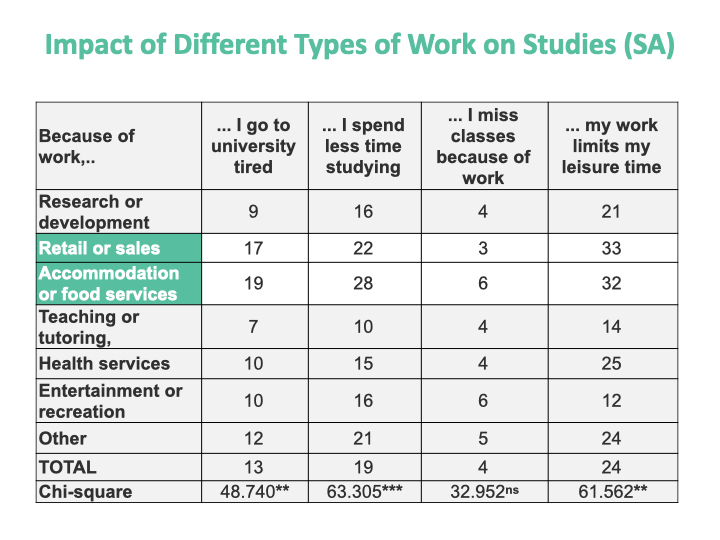
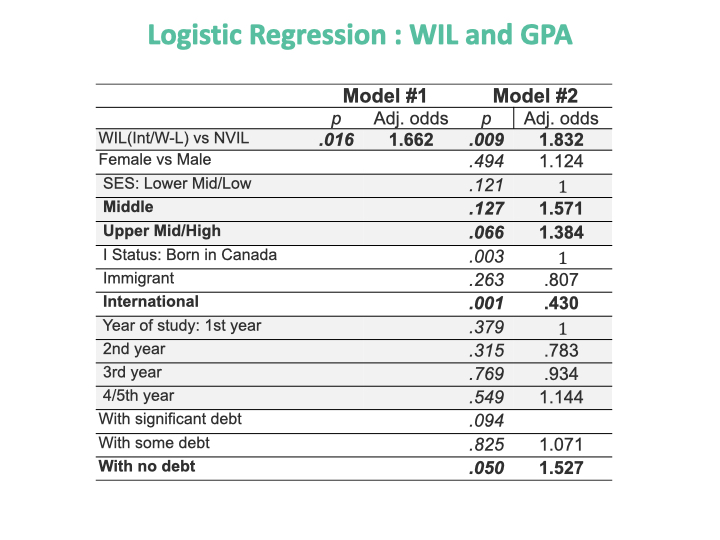
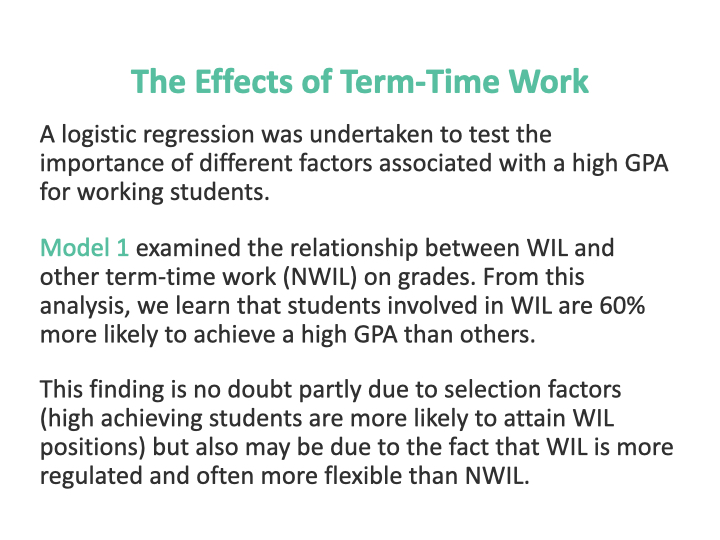
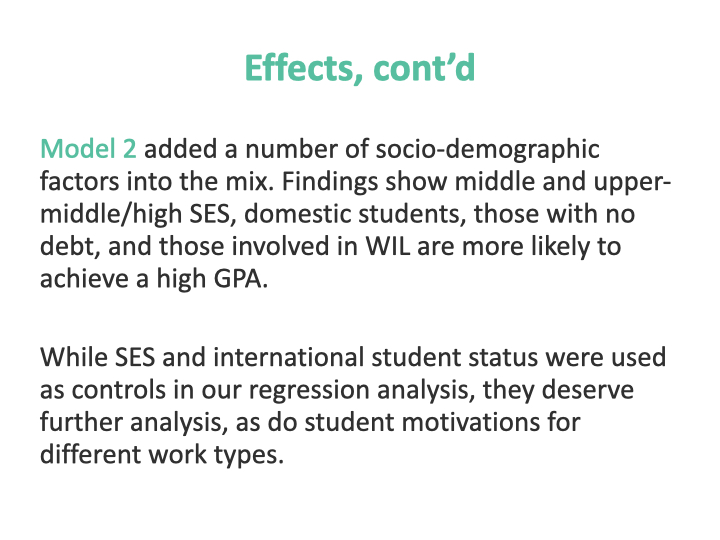
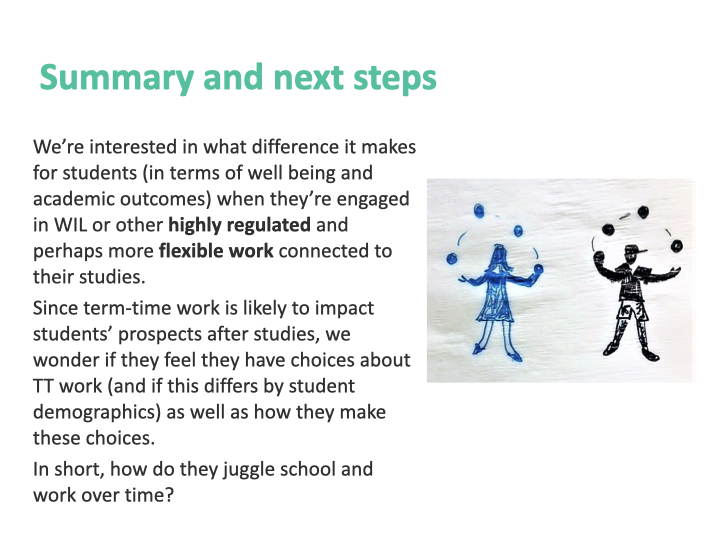
April 2019
American Educational Research Association Conference, Toronto, April 2019
Book Chapters
Taylor, A., & Taylor-Neu, R. (2023). Post-secondary education’s chronic problem (or, It’s about time). In A. A. Abdi (Ed.), Social justice education in Canada: Select perspectives. Canadian Scholars Press.
Taylor, A. (2022). Showing up for the rat race: Beyond human capital models of higher education. In A. A. Abdi & G. W. Misiaszek (Eds.), Palgrave handbook on critical theories of education. Palgrave Macmillan.
Taylor, A. & Raykov, M. (2020). Towards critical and dialogical mixed methods research: Reflections on our journey. In F. Finnegan & B. Grummell (Eds.), Doing critical and creative research in adult education. Rotterdam: Sense Publishing. Open access: https://brill.com/view/book/edcoll/9789004420755/BP000015.xml
Online articles
Taylor, A. (2020, August 6). Drop tuition fees: University students face a precarious future amid COVID-19. The Conversation Canada. https://theconversation.com/drop-tuition-fees-university-students-face-a-precarious-future-amid-covid-19-129285
Blogs
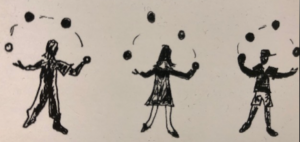
Taylor, A. (2020, May 6). Part 4: Working students. Blog post
“In this post, I turn to our current research on working undergraduate students at UBC and U of T.”

